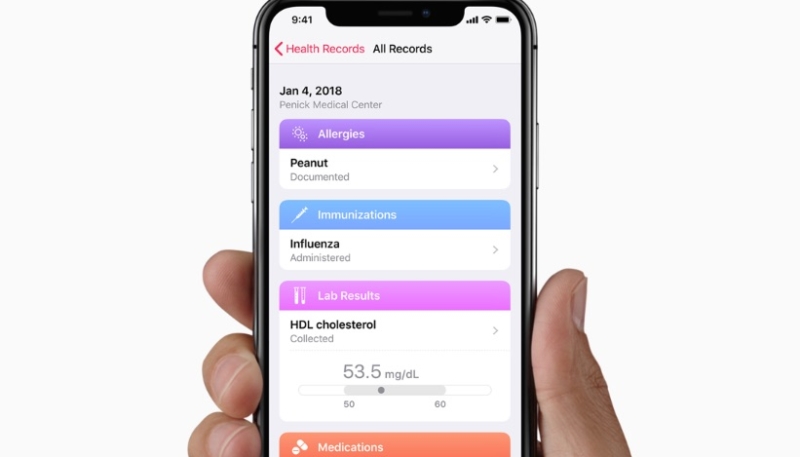Health records firm Epic Systems and around 60 of its client hospitals are coming out against a proposed U.S. government policy that would make it easier for patients to share their Medical records with apps. The proposed policy has the support of Apple and other tech firms.
CNBC reports the modified data sharing rules, which were proposed by the Department of Health and Human Services (HHS) in 2019, would offer patients the ability to share their private clinical data from healthcare providers and make it more accessible to health apps via APIs.
At the moment, patients have difficulty in obtaining their information, as such data is stored on physical media and processed by medical records software supplied to hospitals by firms like Epic. At least one report indicates implementing an “Epic” solution can cost as much as $1 billion for a major health system to put in place.
In a letter to the HHS Secretary Alex Azar, Epic and signatories argue that the pending initiative on interoperability will be “overly burdensome on our health system and will endanger patient privacy.”
“While we support HHS’ goal of empowering patients with their health data and reducing costs through the 21st Century Cures Act, we are concerned that ONC’s Proposed Rule on interoperability will be overly burdensome on our health system and will endanger patient privacy. Specifically, the scope of regulated data, the timeline for compliance, and the significant costs and penalties will make it extraordinarily difficult for us to comply.”
Epic’s letter recommends changes to the proposed rules, including extra clarity around health information related to family members and a longer timeline for the “development of new technology required by the rule,” up from 1 year to 3 years.
A spokesperson for HHS told CNBC that it had received the letter. “We appreciate all stakeholder feedback as we continue to finalize the rules,” they said. “Our ultimate goal is to ensure that patients are able to easily access their electronic medical records.”
Some health IT experts noted that the Epic letter had not been signed by some of the largest clients of Epic, and say their absence is “significant.”
“Their absence represents a thundering silence,” said David Brailer, the first National Health Information Technology Coordinator, appointed by George W. Bush. “Many health systems are quietly discussing how the data access and data fluidity actually benefits them in the long-run.”
It should be noted that tech firms like Apple, Microsoft, and Google all favor the rules, not only out of a desire to offer patients easier access and sharing of their medical information but also because the proposed rules could help them move into the $3.5 trillion health care sector.
Apple has made moves to break into the health industry in recent years. Launching a Health Records service at the beginning of 2018, which is designed to increase the portability of health records to make them available across participating hospitals and clinics. Patients would be able to download their health records to their iOS device and then share them with their health professionals.
(Via MacRumors)


